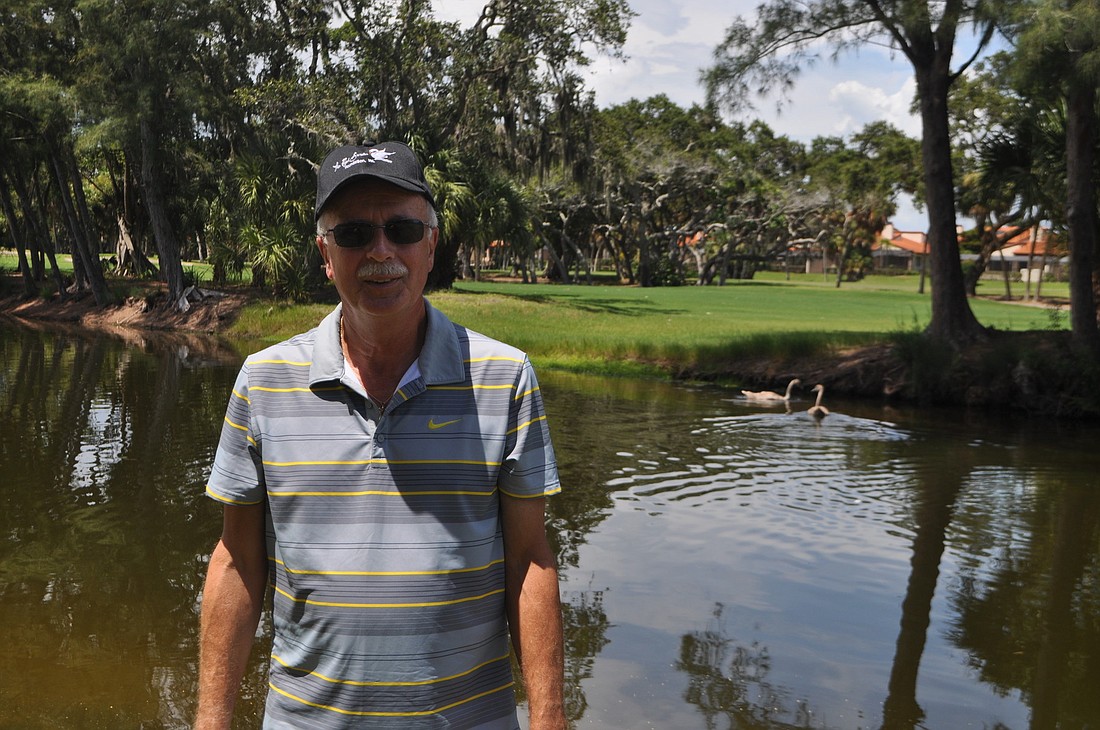- April 18, 2024
-
-
Loading

Loading

Same-sex unions could be the future of the Bay Isles swan family — but not because of recent U.S. Supreme Court rulings.
It’s a possibility because swans, which mate for life, will pair off with a same-sex partner if they’re placed together within the same boundaries. It’s also one, of course, that would eliminate cygnets, aka the white-as-snow baby swans that glide through the water with their parents just a day or two after they hatch.
As unofficial swan keeper David Novak considers the swan family’s long-term future, he’s convinced that the same-sex pairing is the way to address the issues of population control — a real threat, given that the Key has just six swan territories.
Swans will defend their territory if threatened. In 2009, Alan, an adult male swan, drowned a cygnet that intruded on his turf.
With three adult pairs and six healthy cygnets, Novak found himself considering the family’s long-term fate.
Six cygnets hatched in the spring from the nest of Stan and Wendy and were thriving in the water shortly after hatching. Alan and Beverly, by contrast, hesitated about taking their cygnets into the water in their territory.
It turns out, they had good reason: A river otter was in the area and killed their cygnets.
“It was very stressful to see that situation and not be able to help out,” Novak said.
The fact that the other cygnets are thriving is an anomaly. Most cygnets will fall victim to predators or their own parents that cull the flock and eliminate the weakest.
But, given the territorial nature of swans, more isn’t merrier. By November or December, swans chase their cygnets out of their territory, and there aren’t enough territories for six young adults, along with new cygnets each spring.
That’s why in September, the cygnets will travel to Lakeland for veterinary care.
They’ll undergo pinioning — a procedure in which one side of the wing is clipped so that they can’t fly. Sheila Bolin, of the Regal Swan Foundation, told the Longboat Observer in 2010 the procedure is akin to spaying and neutering dogs and cats because it allows swans to be kept in a safe environment.
They’ll also get antibiotic injections for conjunctivitis, ID bands and have their blood drawn to determine their sex.
Because they’ll be pinioned, they can be paired into same-sex couples or placed in other flocks through Novak’s contacts with the Regal Swan Foundation so they don’t add to the Key’s swan population.
Both Alan and Beverly are 12; Stan and Wendy are approximately 9. Both pairs could be close to the end of their reproductive years. Sully and Suzie, however, will likely have a decade’s worth of cygnets that can also be pinioned and placed if they survive to maturity.
Novak’s ultimate goal for the next five to eight years is a same-sex pair for each territory — most likely two female pairs and four male pairs. He’s entered into an agreement with the Regal Swan Foundation to provide long-term care for the family, including veterinary care, reduction of predator influence and population control. (See sidebar above.)
In a letter seeking donors, Novak wrote that the sad part of the process is the eventual absence of cygnets but notes that approximately 95% of the “often arduous work” of swan care is devoted to cygnets.
He wrote that the plan will allow for the “beauty and grace throughout our environment with only a modest amount of effort to support it.”
Novak will continue his efforts as swan keeper.
It’s a role he first took on more than a decade ago as a favor to his neighbor, Alan Stone, who purchased the original swan pair, George and Gracie, for his wife, Beverly, as an anniversary present.
“Nature didn’t bring them here,” Novak said. “Man brought them here, so there’s some responsibility to ensure their life here in the wild.”